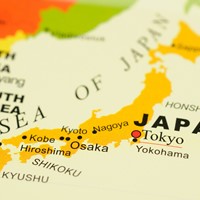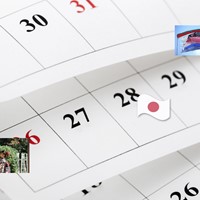Seasonal Living Guide for Foreigners in Japan

This page contains affiliate links.
Life in Japan changes significantly with the seasons. By preparing for spring, rainy season, summer, autumn, and winter, you can enjoy a comfortable and safe daily life.
This guide provides key seasonal tips for foreigners living in Japan and links to more detailed articles for each season. It also includes a seasonal checklist to help you prepare effectively, so you can make the most of each season—whether it’s knowing what to wear, how to handle seasonal events, or managing daily life in extreme weather.
Spring (March–May): Pollen and New Beginnings

Pollen Allergy (Hay Fever) Measures
・Pollen from cedar and cypress trees peaks in spring, so prepare masks and eye drops
・Use an air purifier to maintain indoor air quality
・Check pollen forecasts before going outside and avoid peak pollen times
>> What is Hay Fever in Japan?
Clothing and Wardrobe
・Mornings and evenings can be cool, so layer light jackets or cardigans
・A windproof or waterproof jacket is useful
・Prepare thin long-sleeve shirts or blouses for daytime
>> Clothing Sizes - Japanese vs. Western
New Life & Administrative Tasks
・Register your address and update your residence card
・Join National Health Insurance if applicable
・Complete school or daycare enrollment procedures
・Check for other Japan-specific procedures, such as seal (inkan) registration
Rainy Season (June–July): Humidity, Rain & Mold

Humidity & Mold
・Japan’s rainy season is very humid, which can cause mold and dust mites
・Use a dehumidifier or anti-mold products to keep indoor air clean
Rain Gear & Clothing
・Prepare a folding umbrella and raincoat
・Waterproof shoes and shoe dehumidifiers can be helpful
>> Indoor Sports: Japan's Playground Unroofed
Laundry Tips
・Use indoor drying racks or a dryer
・Plan for clothes taking longer to dry during high humidity
>> Laundry Symbols and Dry Cleaning Services in Japan
>> Japanese Dry Cleaning and English-Speaking Dry Cleaning Services in Tokyo
Summer (August–September): Heat & Typhoon Preparedness

Heat & Heatstroke Prevention
・Japan’s summer is hot and humid; drink water frequently
・Use cooling items and wear breathable clothing
Typhoon & Disaster Preparedness
・Prepare emergency supplies due to possible power outages or transport disruptions
・Include a flashlight, non-perishable food, and water
>> Japan Typhoon Season: How to Prepare for a Disaster
>> Disaster Preparedness: Stockpiling and Emergency Food in Japan
>> Useful Free Apps and Websites to Protect You from Natural Disasters in Japan
Air Conditioning & Utility Costs
・Foreigners may need guidance on how to operate Japanese air conditioners
・Check estimated utility costs to manage your budget
Autumn (October–November): Temperature Changes & Health

Temperature Difference Measures
・Pay attention to morning and evening temperature changes; layer clothing accordingly
・Take preventive measures against colds and flu, including hand washing and humidifiers
Autumn Events & Activities
・Enjoy Halloween, autumn leaves, and other Japanese seasonal events
・Dress appropriately for autumn weather when going out or sightseeing
>> 10 Best Tokyo Flea Markets for Bargain-Hunting
Winter (December–February): Heating, Dryness & Snow

Heating & Condensation
・Be mindful of indoor heating and window condensation during winter
・Check how to use heaters safely and ventilate properly
>> Japanese Kotatsu: Staying Warm in Winter
>> The 10 Best Products for Surviving Winter
Dryness Measures
・Use a humidifier and moisturizers to protect skin and respiratory health
・Maintain indoor humidity around 50–60% for comfort
Snow & Ice Precautions
・Prepare non-slip shoes and snow removal tools
・Check weather forecasts and transportation information
Winter Sightseeing
>> 5 Reasons to Visit Kyoto in Winter
>> Discover Hokkaido’s Best Snow Festivals
>> 5 Fun Ways to Make the Most of Winter in Fukui
By following these seasonal tips, you can enjoy a safer and more comfortable life in Japan throughout the year. Check each detailed seasonal guide to prepare effectively for pollen, humidity, heat, temperature changes, and winter conditions.
Use these tips to make your daily life in Japan easier and more enjoyable!














